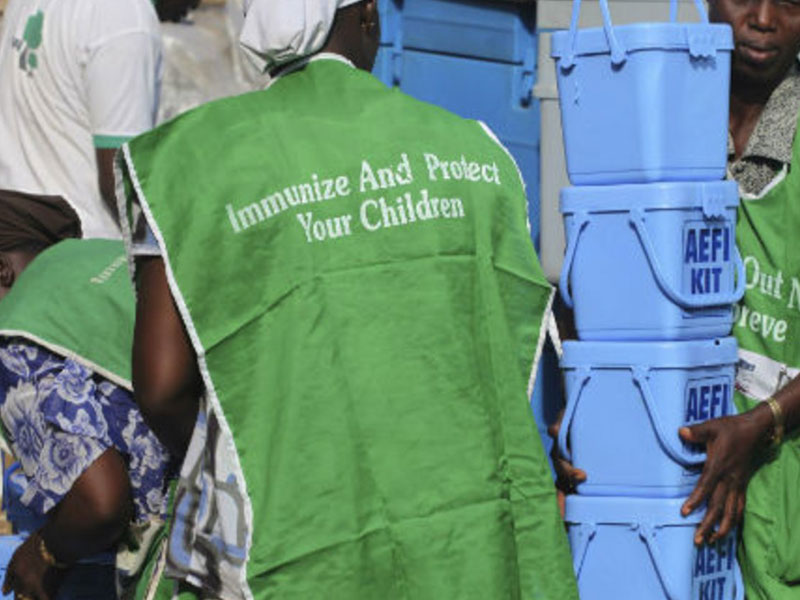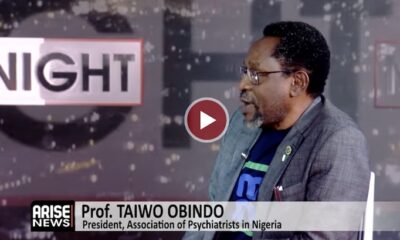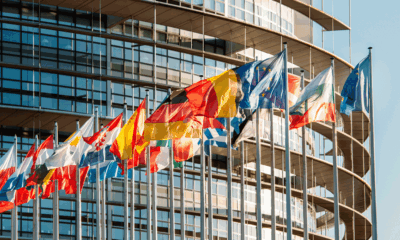Health
Nigeria Launches Africa’s Largest Measles-Rubella Immunisation Campaign

On October 6, 2025, Nigeria will initiate Africa’s largest integrated health campaign to combat measles and rubella. This comprehensive effort aims to reduce the incidence of Congenital Rubella Syndrome (CRS) and halt the transmission of measles and rubella infections across the country. The campaign will introduce the measles-rubella vaccine into Nigeria’s routine immunisation schedule.
Measles is a highly contagious disease characterized by high fever, rash, cough, and red eyes. It can lead to severe complications, including pneumonia and encephalitis. Rubella, also contagious, causes symptoms such as a rash and low fever. The upcoming campaign targets the prevention of these diseases in Nigeria’s young population, focusing on those aged 9 months to under 15 years.
Campaign Objectives and Phases
The first phase of the campaign will reach approximately 63 million children, while a second phase aims to vaccinate an additional 43 million. The goal is to achieve a 95 percent coverage rate in all implementing states. This initiative is particularly crucial in addressing the gap of children who have not received any vaccinations, often referred to as zero dose children, especially in northern Nigeria.
The Nigerian federal government is leveraging this extensive campaign not only to combat measles and rubella but also to enhance routine immunisation efforts. This includes the introduction of the Human Papilloma Virus (HPV) vaccine for girls aged 9 years old and strengthening other immunisation activities for children in their second year of life.
According to the Executive Director of the National Primary Health Care Development Agency, Dr. Faisal Shuaib, this campaign represents a significant step towards protecting the health of Nigeria’s children. He emphasized the importance of reaching these vulnerable populations to prevent outbreaks and ensure a healthier future for the country.
Broader Implications for Public Health
The integrated health campaign is critical not only for immediate immunisation needs but also for long-term public health goals. By improving vaccination rates, Nigeria aims to reduce the overall burden of infectious diseases, thereby enhancing child health outcomes across the nation.
As the campaign launches, health officials will closely monitor progress and address any challenges that arise. The commitment to these immunisation efforts reflects Nigeria’s dedication to safeguarding its children’s health and well-being, paving the way for a healthier future.
This initiative is a clear demonstration of the government’s efforts to improve health infrastructure and provide vital healthcare services to all citizens, particularly the most vulnerable populations.
-

 Entertainment3 months ago
Entertainment3 months agoAnn Ming Reflects on ITV’s ‘I Fought the Law’ Drama
-

 Entertainment4 months ago
Entertainment4 months agoKate Garraway Sells £2 Million Home Amid Financial Struggles
-

 Health3 months ago
Health3 months agoKatie Price Faces New Health Concerns After Cancer Symptoms Resurface
-

 Entertainment3 months ago
Entertainment3 months agoCoronation Street’s Carl Webster Faces Trouble with New Affairs
-

 Entertainment3 months ago
Entertainment3 months agoWhere is Tinder Swindler Simon Leviev? Latest Updates Revealed
-

 World2 weeks ago
World2 weeks agoBailey Announces Heartbreaking Split from Rebecca After Reunion
-

 Entertainment2 weeks ago
Entertainment2 weeks agoCoronation Street Fans React as Todd Faces Heartbreaking Choice
-

 Entertainment4 months ago
Entertainment4 months agoMarkiplier Addresses AI Controversy During Livestream Response
-

 Science1 month ago
Science1 month agoBrian Cox Addresses Claims of Alien Probe in 3I/ATLAS Discovery
-

 Health5 months ago
Health5 months agoCarol Vorderman Reflects on Health Scare and Family Support
-

 Entertainment4 months ago
Entertainment4 months agoKim Cattrall Posts Cryptic Message After HBO’s Sequel Cancellation
-

 Entertainment3 months ago
Entertainment3 months agoOlivia Attwood Opens Up About Fallout with Former Best Friend





















